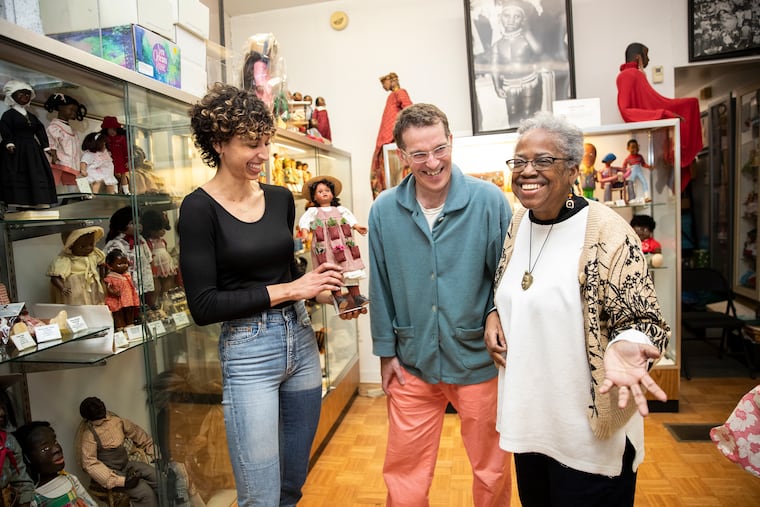Grant will preserve the legacy of Black dolls and the Philadelphia Doll Museum
The Ruth Foundation for the Arts granted $400,000 to preserve the Philadelphia Doll Museum collection and the work of collector Barbara Whiteman.

Beyond an emporium of prized toys and large figurines, the Philadelphia Doll Museum has been the center of Barbara Whiteman’s research and collection of storied antiques for over 30 years.
Established in 1988, the Doll Museum has been home to hundreds of Black dolls, each symbolizing the heritage, triumphs and struggles endured by Black Americans including civil rights leaders like Martin Luther King Jr., Harriet Tubman, Barack Obama, W. E. B. Du Bois, and others.
Though the doors of the museum closed in 2020, the Ruth Foundation for the Arts has granted $400,000 over the next two years to help preserve 300 of Whiteman’s dolls to extend the collection’s shelf life.
The funds, part of a $1.5 million initiative by Ruth Arts, were granted to Doll Museum Forward, a city-wide project led by Whiteman and Philadelphia Contemporary’s Rob Blackson that’s focused on the cataloging and circulation of the collection across the region.
Over the next two years, Blackson said Doll Museum Forward plans to connect with local organizations and businesses and lend Whiteman’s dolls for arts programs and educational events.
“I’m not going to fall down and cry, but there is an emotional attachment to each doll because they have a story, and I was a part of it,” Whiteman said. “But it’s my joy to share this knowledge because I will always look at it from a historical perspective. The research and the history of it will continue.”
“We’re in a position to start welcoming people to the collection and specifically talking to cultural organizations and Black businesses in the Philly area who would be interested in temporarily borrowing a doll from [Whiteman’s] collection to display … at their own site,” Blackson said.
Ruth Arts executive director Karen Patterson agreed that the historical importance of the dolls — some are made with chicken bone and corn husk — far exceed the presence of a physical location. And with Blackson and Whiteman leading Doll Museum Forward, she’s confident their efforts will illuminate how similar collections can be displayed outside a traditional arts space.
Blackson said organizations like the Please Touch Museum, Harriett’s Bookshop, Historic Strawberry Mansion, Tree House Books, and the Free Library of Philadelphia have already signed up to borrow dolls, and he’s excited to see how the Doll Museum Forward initiative evolves in the coming months.
“There’s still so much to tell and there’s still so much to understand, and the idea that these dolls will circulate throughout Philadelphia is amazing,” Patterson said. “The lessons inherited in each of them goes beyond the walls of the museum. The museum structure itself isn’t as important as the lessons held inside.”